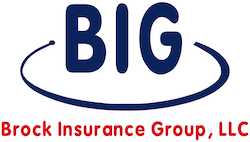Agricultural businesses face various risks that could impact their operations, and they need to have strategies in place to help address their exposures. Although each circumstance is different, employers need to be aware of ways to mitigate potential losses.
Read on for more information on risks in agriculture and available resources that address how to manage them.
Risks:
No matter the current conditions, there is always uncertainty in agriculture. For example, markets can fluctuate, the weather can be unpredictable, diseases can impact livestock or crops, labor can be challenging to find, and state and federal policies can change. All of these variables can significantly impact operations.

Here are more details on agricultural risks:
Market uncertainty—The uncertainty of markets and the task of striking the proper balance between supply and demand can impact the financial success of farming operations. Even though prices of agricultural commodities have recently fallen, they are strong when compared to historical standards. However, output prices continue to weaken while input costs remain consistently high. Maintaining sufficient margins may be challenging if commodity prices return to their averages because production costs are often slow to adapt. This situation can impact cash flow and profitability.
Weather and diseases—Weather events, such as droughts, floods, hail and other natural disasters like wildfires, can significantly damage farms. Diseases can also harm crops and livestock. Both of these risks are unpredictable and can lead to significant losses.
Policy changes—New or shifting farm policies, as well as delays in policy updates, can affect operations. Whether they impact production methods, supply chains or global trade, changing policies can alter the working environment. A lack of development can create uncertainty that can be difficult to navigate.
Labor challenges—Labor can present challenges, as difficulties in finding, hiring and retaining workers may exist in tight markets. Additionally, managerial issues may arise even if operators only work with family members. It is also imperative to consider the health and safety risks that are inherent in the agricultural sector.
Risk Mitigation Resources
Agricultural operations need to have strategies in place to mitigate the risks in their industry. To develop these plans, several resources may be utilized to help employers acquire the skills and knowledge needed to recognize risks and address them by implementing risk management programs. For example, the U.S. Department of Agriculture Risk Management Education Centers have materials available to address production, marketing, financial, legal and HR risks. Additionally, local university extension offices may offer additional programs and information.
An insurance broker or agent can also be a useful resource for insight on securing various coverages for agricultural exposures. They can also provide access to additional risk management materials.
For more information, contact us today.
